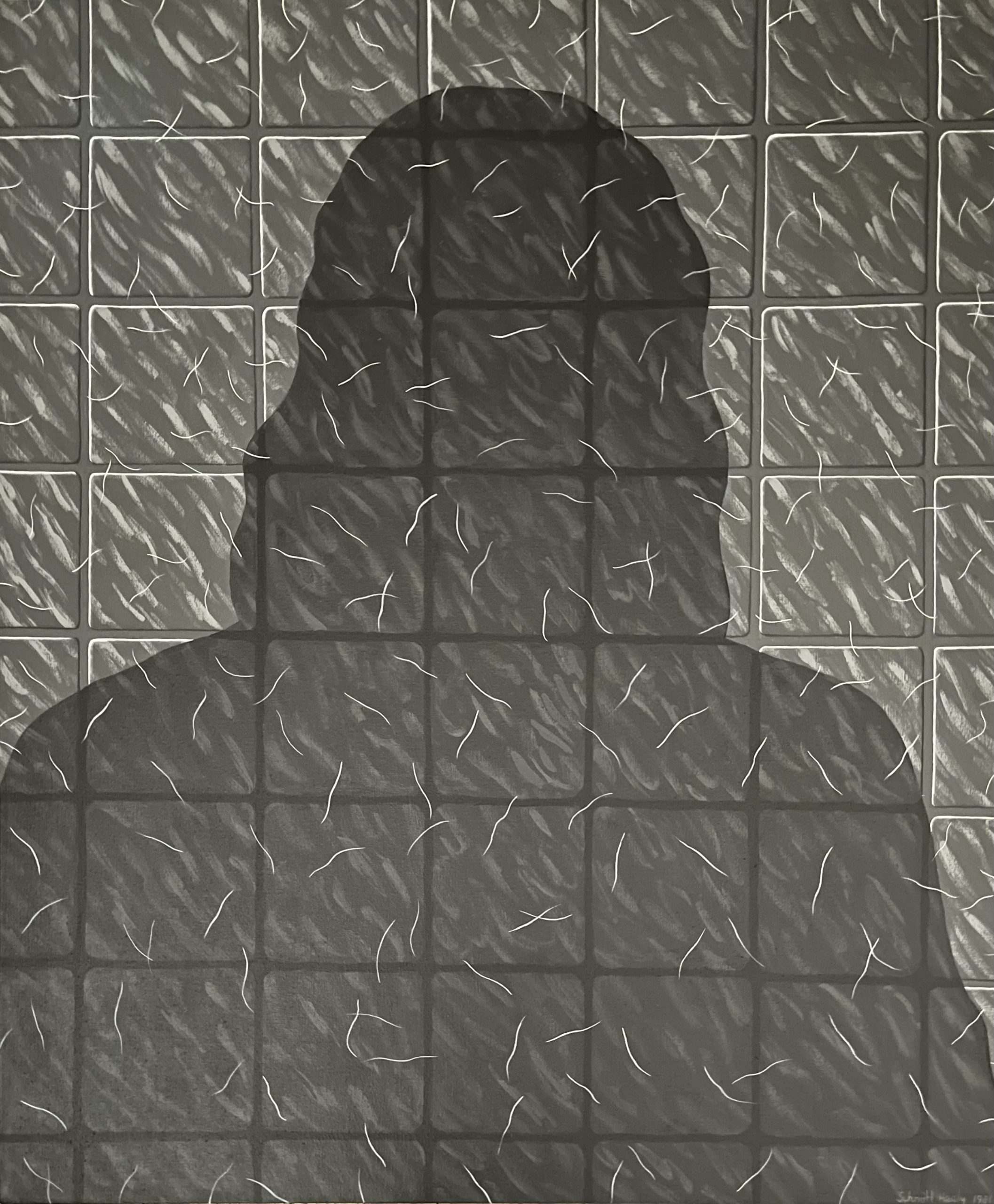Gallery One, Chicago

For our third exhibition with Julia Schmitt Healy, Western Exhibitions is thrilled to present a selection of work from across the entire decade of 1970s that focuses on Healy’s idiosyncratic approach to portraiture. Culled from multiple bodies of work, in multiple mediums (painting, watercolor, collage, trapunto, lithography), made in multiple locations (Chicago, Ethiopia, Ireland, Nova Scotia New York), Healy’s portraits (or at times, anti-portraits) riff on nostalgia, superficiality, aging, pareidolia, societal mores, domesticity and pets, all through a distinctly Chicago Imagist lens. Please join us for an opening reception on January 10, from 5 to 8pm. The show runs through February 22 and gallery hours are Tues-Sat, 11am to 6pm.
Julia Schmitt Healy conjures her works not from reality, but from essence, in her words “something that comes from the unknown”. Recontextualizing portraiture is a persistent theme across her work as she has often stated that she is “not interested in getting it exactly right”. Her 1970 series of paintings and watercolors, Empty People, flips portraiture on its head, literally. Facing the subject away from the viewer collapses the canon of spectacle/spectator perspective. No longer about the face, posing, and lighting, Empty People Series presents a pictorially framed and divided encounter for reflection.
In the early 70s wrinkles emerge as a key motif, as Healy reflects on aging, memory, nostalgia, and the corporeal body. The graphic depiction of the wrinkles appears as rhythmic repeated striations across not just her subject’s bodies but also as on overall field in watercolors, paintings, and crucially, trapunto textiles, and not just limited to human bodies — automobiles, pets, even mountains get her wrinkled treatment. Her textile paintings exist somewhere between painting, pillows, and soft sculpture; the undulous material apt for engaging in the sagging and wrinkling body. This turn toward craft materials was a bold one at the time, applying quilting techniques to fine art disciplines.
Healy’s captivating wood-grain drawings, lithographs, and wallpaper collages, privately referred to as Housewife Works, depict women made of woodwork, betraying her fascination with domesticity. Created with woodgrain-paneled wallpaper randomly discovered in a shop in Canada, Healy made subtle and witty collages that continued to explore faces and figures in unconventional silhouettes illustrating the head of a lady, a wrapped mummy head, a surprised ghost with a knothole for a mouth and a coffin. She can trace her fascination from childhood, finding faces as she would gaze at the wood of her bedroom walls, practicing the definition of pareidolia: the science of looking for faces in everyday objects.
Julia Schmitt Healy (b. 1947, Elmhurst, Illinois) received a BFA and MFA from the School of the Art Institute of Chicago, where she studied with Ray Yoshida and Whitney Halstead. After graduation, Healy moved to Africa, where she traveled and lived, then later toured Europe and moved to Nova Scotia, Canada with her first husband. Her work was represented for many years by Phyllis Kind Gallery in New York and Chicago, as well as Susan Whitney Gallery in Canada. While in school, she co-curated a mail art show with artist Ray Johnson, called “Intercourse” at the Wabash Transit Gallery. Her work is in the permanent collections of the Art Institute of Chicago, Museum of Contemporary Art Chicago, Everson Museum (Syracuse, NY), Queensborough Museum (NY), Staten Island Museum, Confederation Art Gallery (Canada) and The Canada Council Art Bank. Julia Schmitt Healy lives and works in Port Jervis, New York.,